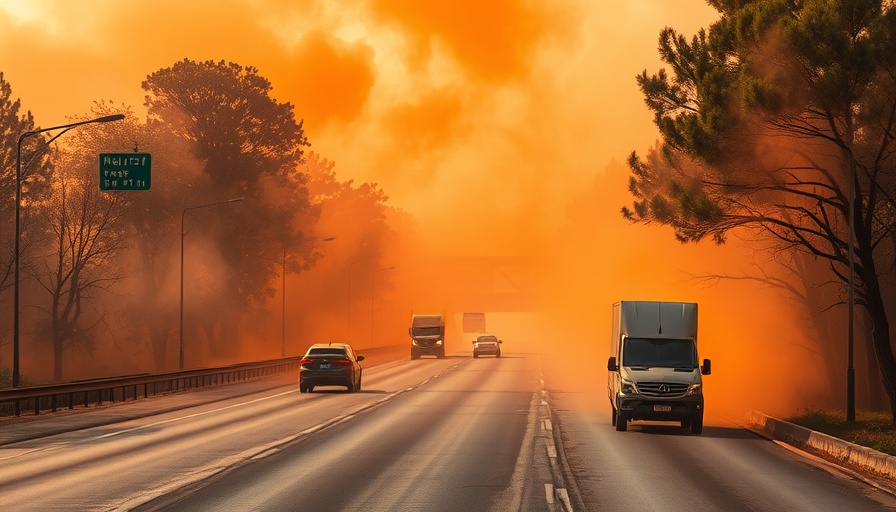
Wildfires Reshape Israel's Independence Day Celebrations
This year, celebrations marking Israel's Independence Day took an unprecedented turn as the majority of scheduled events were canceled due to raging wildfires driven by strong winds and high temperatures. The decision, made by officials during a critical situational assessment, reflects not only a precautionary response to safety concerns but also highlights the growing impact of climate changes on national celebrations.
The Situation on the Ground: Understanding the Fires
Recent reports indicated that wildfires spread across Jerusalem's hills, necessitating a national declaration of emergency. Firefighting services engaged in a relentless battle against the flames, requesting international assistance from countries such as Greece and Cyprus. The local authorities issued the cancellations for events such as the ceremonial torch lighting, which is traditionally a focal point of Independence Day. Instead of a live event, organizers opted to broadcast a previous rehearsal to honor the occasion’s importance amidst the crisis.
International Response and Support
As the fires raged, Israel sought global help, a move that underscores not only the immediate danger posed by the blazes but also the interconnectedness of nations in times of environmental crises. Aid from neighboring countries exemplifies the solidarity that arises even amid politically charged environments. For viewers and followers around the world, witnessing acts of support offers a much-needed reminder of community beyond borders.
Historical Significance: The Tradition of Independence Day
Independence Day in Israel is steeped in historical importance, celebrating the birth of the nation in 1948. It serves as a moment for reflection on the journey undertaken by the Jewish people toward statehood. The abrupt cancellation of events this year not only disrupts the festive atmosphere but changes the narrative surrounding this significant day, forcing citizens to reflect on both their national identity and the ongoing threats posed by natural disasters.
Implications for Future Celebrations
As environmental factors increasingly dictate major events like Independence Day, there is a critical opportunity for dialogue around climate change and its potential impacts on cultural practices and traditions. The situation raises questions about preparedness for future celebrations and the measures needed to ensure community safety while maintaining cultural significance. Are enough resources and policies in place to combat the effects of climate change? What role does community play in this conversation?
Cultural Reflections and Tomorrow's Hope
Despite the cancellation of events, the resilient spirit of the people remains unbroken. This resilience serves as an inspiration to find alternative ways to celebrate and honor important events. The communal bonds formed during crises can foster unity and compassion, driving efforts to rebuild and reflect on shared histories. As this year’s Independence Day comes to a close, the hope remains that future celebrations can marry the joy of tradition with the need for safety and environmental awareness.
In a moment when many feel the despair of disasters and losses, the resilience of community and culture shines through. Acknowledging these challenges allows for deeper conversations about how faith, culture, and advocacy intersect within larger societal frameworks.
As we consider the impact of climate change on our celebrations and gatherings, reaching out to support our communities in need becomes imperative. Take proactive steps by engaging with local initiatives that focus on environmental sustainability and promoting dialogue around these pressing issues.
 Add Row
Add Row  Add
Add 








Write A Comment